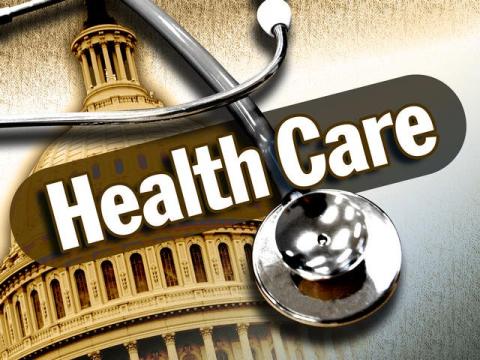health care law, and as its critics are now louder than ever, the Obama administration is moving fast and furiously to fix the Affordable Care Act.
"Obamacare" critics are quick to cry "disaster," but the law's advocates are insisting that people give it more time.
So what can we expect to get out of this new law? To get a good idea it would seem reasonable to look at the Massachusetts health care reform law as it was the model for the national law.
A common talking point among the White House and the Department of Health and Human Services is that premiums will go down under the new law. However, a recent analysis by the Heritage Foundation finds that the average premiums under Obamacare are set to soar.
So, how have premiums fared under Romneycare?
According a study done by the Massachusetts Division of Healthcare and Finance Policy, between 2008 and 2010 overall premiums increased by 7.5 percent. In the executive summary of the report, the DHFP states:
Multiple studies have shown that health insurance premium costs in Massachusetts and the Northeastregion are among the highest in the nation, placing a substantial burden on consumers and employersseeking good value for their spending on medical services.
Alongside this, a report from the Massachusetts Center for Health Information & Analysis (released in August 2013) concluded that from 2009 - 2011, premiums rose by 9.7 percent, but benefits decreased by 5 percent.
In fact, in 2009, after just3 years of Romneycare, the average premium in Massachusetts was $442, up 21 percent from the year before Romneycare.
It is evident that despite the intentions of the Act Providing Access to Affordable, Quality, Accountable Health Care, quality has decreased slightly (fewer benefits), and it's not as affordable (higher premiums).
What about access?
In July, the Massachusetts Medical Society released their annual 'Patient Access to Care' study. The survey was done by collecting data from 1,137 physician offices.
The survey examines availability and access to non-emergency, new patient appointments in the following seven specialties:
- Cardiology
- Internal Medicine
- Family Medicine
- Gastroenterology
- Obstetrics/Gynecology
- Orthopedic Surgery
- Pediatric
The average wait time to see a cardiologist in 2013 was 28 days, down from 29 days last year and has been steady around 28-30 days since 2007, peaking at 34.
Wait time for internal medicine is currently 50 days, up 6 days from 2012 and 17 days since 2006.The study shows that wait times to see a primary care physician remain long with the average wait time being 39 days. The wait time is down from 45 days in 2012. However, it is up overall since the law went into effect in 2006.
Gastroenterology is the only area to significantly decrease in wait times. In 2006, the average wait time was 41 days compared to 33 days n 2013, but has averaged 39 days since the law went into effect.
Following the law's enactment in 2006 wait times for OB/GYNs went up considerably from 34 days in 2006 to 46 days in 2007. Since then the wait has fluctuated slightly, dropping back down to 34 days in 2010, but rose to 37 days in 2013.
Orthopedic surgery wait times have been up and down since 2006 with a low of 17 days in 2010 and high of 26 days in 2011. This year, the average wait is 22 days. The wait for pediatrics has remained very steady, averaging 24 days for the past few years.
In terms of wait times, the Massachusetts Medical Society says in their press release:
wait times for new patient appointments with primary care physicians remain long, that half or more of primary care practices remain closed to new patients, and that acceptance of the government insurance programs of Medicare and MassHealth (Medicaid) by physicians remains high in the Commonwealth.
According to the 2009 Merritt-Hawkins Survey of Physician Appointment Wait Times of metropolitan areas, Boston had the highest wait times for: Dermatology, OB/GYN, and Family Practice, and had the third longest wait time for Orthopedic Surgery. Only Cardiology was really "in the clear" with a wait time of 21 days, which was less than 3 other states, but still well above the national average of 15.7 days.
'Romneycare' has long been touted as the model for 'Obamacare,' but if what we see in Massachusetts is any indication of what we can expect to see on a national level then perhaps some changes to the law might be in order. Thus far in the 'Bay State' there has been in increase in premiums, and a slight decrease in access to care.
Not even a month into the "grand opening" of the Affordable Care Act, CBSnews has confirmed that 2 million Americans will lose their current health insurance, and the Heritage Foundation and Manhattan Institute have released studies showing that striking increases in premiums are headed our way.
